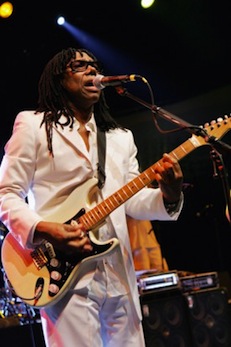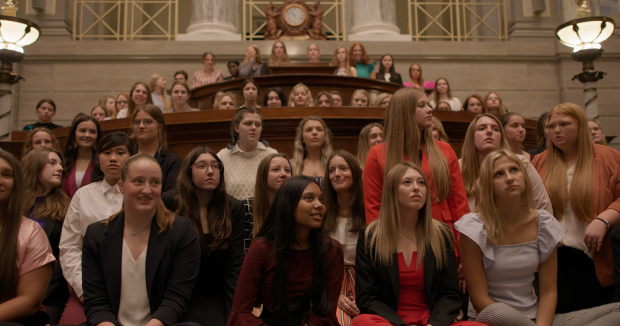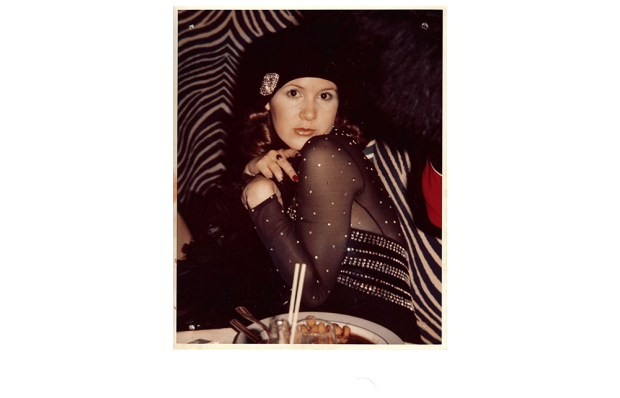A few weeks ago, my eight-year-old son, who’s taken up the guitar, announced that he’d learned something new. He then played a sequence of chords — approximately, Duh-duh-duuh, Duh-duh-da-duuh — that I’ve been hearing from all guitarists since I was about eight myself. ‘It’s called “Smoke on the Water”,’ he informed me, unnecessarily.
Of course, any sign that the world hasn’t changed as much as we thought is always welcome to the middle-aged man. Yet when I showed him Deep Purple performing the whole track on YouTube, he was both slightly bored and rather mystified. Not only had he no idea that ‘Smoke on the Water’ came with a song attached, but he couldn’t understand why it needed one.
This ability of a guitar riff to float free of its origins was among the points made by The Joy of the Guitar Riff, one of those BBC4 music documentaries that, for all their moments of minor — and not so minor — irritation, can generally be relied on to rescue Friday night telly in the absence of Have I Got News for You.

On the whole, the programme took a chronological approach — although not as thoroughly as you might have expected from the opening claim by Tom Morello of Rage Against the Machine that ‘Beethoven’s Fifth Symphony contains one of the great riffs of all time’. From there, we leapt forward exactly 150 years to the song that we were told started it all. Before ‘Johnny B. Goode’, the main instrument in rock’n’roll was the piano. But then Chuck Berry had the bright idea of playing boogie-woogie on the guitar — which, as various grizzled old rockers testified, proved revolutionary. (Their presence, incidentally, also confirmed the strange but undeniable fact that proper rock stars never go bald.) More surprisingly, it seems that Nasa scientists agree, because ‘Johnny B. Goode’ was one of the songs carried out of the solar system by the Voyager spacecraft to demonstrate ‘humanity’s greatest cultural achievements’ to the rest of the universe.
Meanwhile back on Earth, Britain had its first guitar hero, in the unlikely shape of Hank Marvin, whose clean-sounding style dominated the early Sixties — until Dave Davies of the Kinks came up with the distorted riff to ‘You Really Got Me’ that so influenced The Who and the Rolling Stones. ‘Distortion is the sonic equivalent of anger,’ as Richard Hawley neatly put it — which is why ‘You Really Got Me’ is a song where the singer clearly isn’t best pleased about being really got.
At this stage, Friday’s show was ticking along nicely, despite the narrator’s script displaying many of the annoying tics of rock-doc voice-overs, including the forced jocularity (Led Zeppelin ‘registered a ten on the Riffter scale’) and the belief that nothing ever simply changes anything; instead, it changes it…dramatic pause…for ever. (Actually that last one applies to documentaries of all kinds.) When it reached the mid-1970s, though, something weird happened. Presumably because of the BBC’s compliance policies, or at least the internalisation of them by its producers, the programme suddenly appeared to panic that it was a bit too male — and so decided that ‘a generation of women emerged who would challenge the riffing patriarchy’. As proof, a central place in rock history was accorded to the bands Heart and especially the Runaways, who apparently ‘tore gender stereotypes apart’ by such methods as having a lead singer who performed in stockings and suspenders.
Fortunately, its political duty done, the documentary settled down again as it headed to the present day — or near enough to it for BBC4 viewers. Old punks might have resented the absence of the Sex Pistols, which even five years ago would have been unthinkable. But since then there’s been an interesting change in the notion of the pop canon. Back in the late 1970s, Danny Baker outraged the readers of NME (me included) by suggesting that the music of Chic would prove more lasting than anything produced by punk. These days, it’s a proposition that’s hard to argue with — particularly after Friday’s section on the disco riffs that Nile Rodgers contributed to what now sound like Chic’s series of indisputable masterpieces. It also helped that Rodgers himself took part, adding to the impressive roster of guitarists playing their greatest bits with touching and entirely justified pride.
By the end, even the programme’s dodgiest moments weren’t enough to get in the way of its central aim of showing that the quest for the unforgettable guitar riff is a fine and noble one — and has often been triumphantly achieved. There might, mind you, have been a touch of hyperbole in the closing remarks by Wayne Kramer of the MC5. ‘The great riff,’ he declared, ‘is the key to unlocking the mysteries of the universe.’
Got something to add? Join the discussion and comment below.
Get 10 issues for just $10
Subscribe to The Spectator Australia today for the next 10 magazine issues, plus full online access, for just $10.
You might disagree with half of it, but you’ll enjoy reading all of it. Try your first month for free, then just $2 a week for the remainder of your first year.













Comments
Don't miss out
Join the conversation with other Spectator Australia readers. Subscribe to leave a comment.
SUBSCRIBEAlready a subscriber? Log in